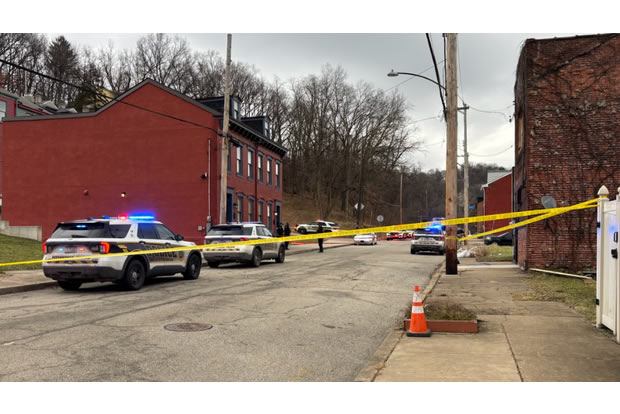Hamburg, Germany — The U.S. has a long way to go with its coronavirus vaccine distribution, but it’s way ahead of most other countries. That includes Germany, where many have chosen to wait for one vaccine over another, instead of just getting the shot that is most available.
The U.S. has 60 million doses of the Oxford-AstraZeneca vaccine ready to roll out the moment the FDA authorizes it. As CBS News correspondent Chris Livesay reports, that vaccine is already available in Germany, where COVID-19 cases have been on the rise lately. The hard part has been getting Germans to take it.
At Germany’s biggest vaccination center in Hamburg, 35-year-old surgeon Johannes told us he had been eager to get his first shot, so he could stop worrying so much about the risks of potentially carrying the disease from the hospital back home to his partner and their newborn son.
But now that the offer has actually come for a shot of the AstraZeneca vaccine, Johannes admits he’s “a little bit afraid.”
“I thought I was getting the [Pfizer]-BioNTech vaccine, but now I heard there’s the decision that I don’t get it,” he said. “I was really disappointed.”
It’s a scene playing out across Europe’s most powerful country. Germany has already taken delivery of more than 1.4 million doses of the AstraZeneca drug, and they’ve been distributed to vaccination centers across the country like the one in Hamburg.
But polling suggests about half of Germans don’t really want it.
- “Vaccine nationalism” threatens Europe’s COVID vaccine supplies
More broadly, the European Union, which organized the purchase of all vaccine doses collectively for its 27 member states, secured a whopping 400 million doses of the U.K.-developed vaccine.
Clinical trials suggested that the AstraZeneca formula was between 60% and 90% effective at preventing symptomatic COVID-19 infection — lower than the 95% efficacy that Pfizer/BioNTech reported in their trials.
Then Germany’s national vaccine committee refused to approve the AstraZeneca for people over 65 years old, citing a lack of data from the trials proving it worked well on those older individuals.
The backlash was fast, significant, and it even spread outside of Germany to other major European countries, including France, where the vaccine was only recently cleared for use on older people. Germany still hasn’t approved it for use on all adults, but the government is currently reviewing the restriction for over-65s, and senior doctors in the country have called for its authorization for all over-18s.
Still, many Germans simply don’t trust the AstraZeneca vaccine, despite new, real-world data from the U.K. that suggests the shot is actually more effective than the Pfizer vaccine in preventing hospitalization — a stunning breakthrough, according to immunologist Thomas Jacobs.
“We have not a best and second best; we have two very effective and safe vaccines,” he told CBS News, referring to the drugs approved for use in Germany. He said there could be a “little bit” of simple snobbery when it comes to Germans turning their nose up at the British-developed vaccine in favor of the Pfizer one, which was, after all, made in part by German firm BioNTech.
The director of the Hamburg vaccination center said it was a distinctly first-world problem.
“You know, it’s people — you want the best,” Dirk Heinrich told Livesay. “You want to drive a Porsche if you have the chance, instead of another car.”
With many Germans refusing the AstraZeneca “other car,” most of the doses of it already in Germany are sitting in cold storage.
Compared to nearly 15.3% of Americans having had their first vaccine shot, fewer than 6% of Germans have had theirs.
But as Johannes told CBS News, “we all want to get back to normal life,” and changing perceptions of the AstraZeneca vaccine in Germany might help build on the already-rising number of shots administered there, and across Europe.
Chancellor Angela Merkel has now come out to defend the AstraZeneca vaccine. She was to meet Wednesday with state leaders from around Germany to discuss the next phase of the pandemic response in the country, where life is still largely locked down.














+ There are no comments
Add yours